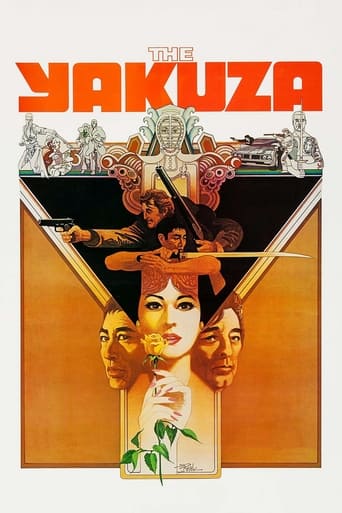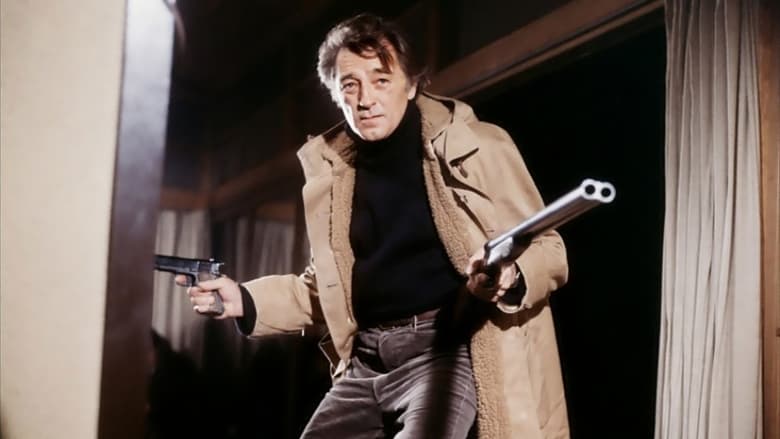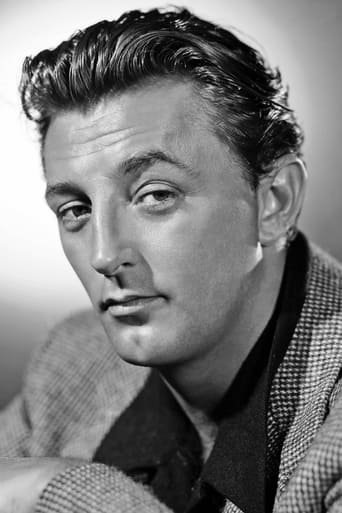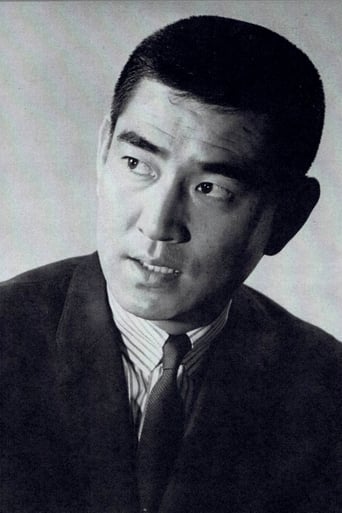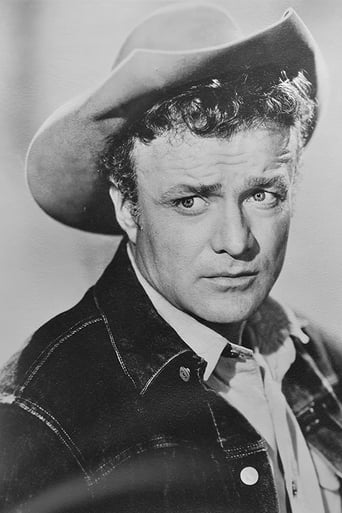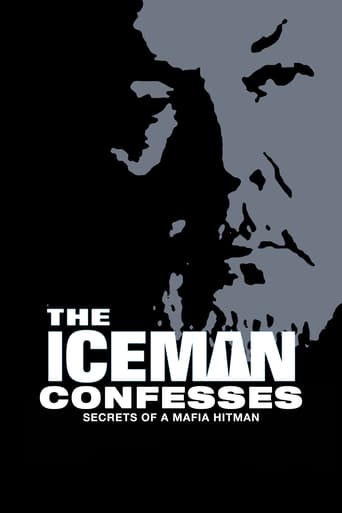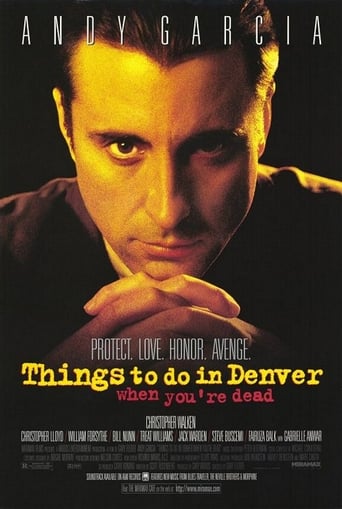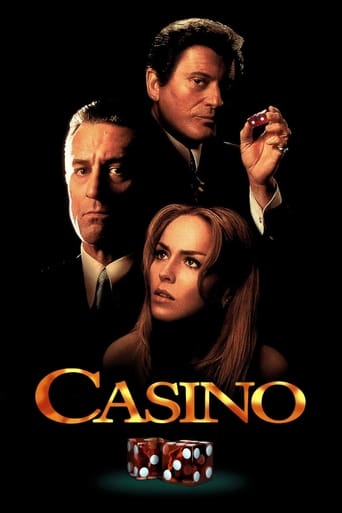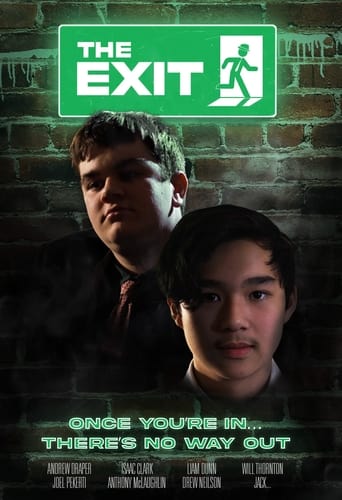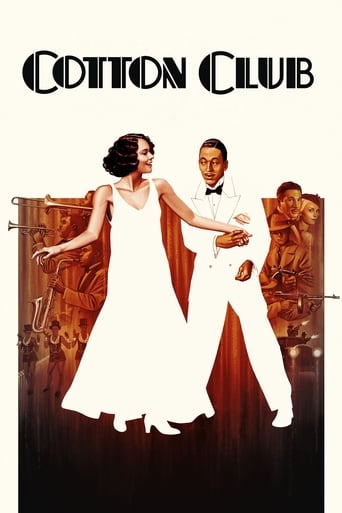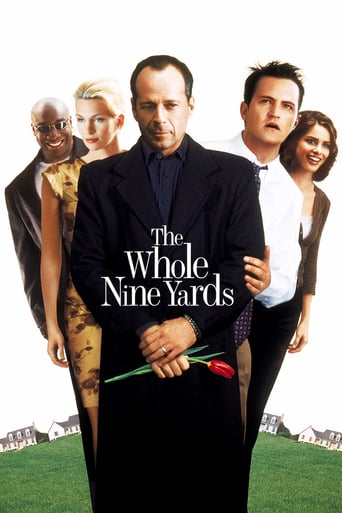The Yakuza (1975)
Harry Kilmer returns to Japan after several years in order to rescue his friend George's kidnapped daughter - and ends up on the wrong side of the Yakuza, the notorious Japanese mafia.
Watch Trailer
Cast


Similar titles
Reviews
That was an excellent one.
Simply Perfect
Great movie. Not sure what people expected but I found it highly entertaining.
By the time the dramatic fireworks start popping off, each one feels earned.
The Yakuza are members of the Japanese Mafia. They make our American version seem like school girls by comparison. Robert Mitchum is a sort of every man who drifts from job to job, just getting along. An old friend appears asking for a favor. He is a wheeler dealer named George (Brian Keith) whose daughter has been kidnapped by the Yakuza for reneging on an arms deal with them. Harry (Mitchum) travels to Japan to rescue George's kid. In the process, he set off a mob war. He also reunites with an old flame and her daughter. The violence is what one would expect from this kind of film, with guns, knives and swords used frequently. Mitchum is his usual cool self, taking over every scene. The supporting cast are all good and The Yakuza is a fun ride for two hours.
There are some serious problems with the movie from the screenplay to production. Let's start from the screenplay.It starts slow plain boring. There is a flat opening scene which a Yakuza member offers his service to the mob boss in Japan, follows with an exceptionally long opening credits and then again one flat scene leads to another. Nothing really happens till almost half of the movie and by that time I bet half of the audience decide not to waste more time. When the action begins again there is another surprising fact to the downside. It was not supposed to be a Kill Bill type of movie in which a good swordsman kills an army without getting a scratch and apparently that's what happening. I really didn't expect the movie to get as unrealistic as it got but what really bothered me was that the hero of the movie was aging Robert Mitchum (Kilmer), at 57 years old he was already in bad shape, seeing him I could easily dream of heart attack! How come this 57 years old, 75 looking heart attack dreamcatcher manages to shoot and kill everyone like John Wayne in his 30s? Also the Yakuza looks like an army of brainless zombies... Makes sense, they better be if the hero is that old fart otherwise the movie would look even worse than what it already was. Kilmer and Tanaka managed to kill the zombie Yakuza army easily, kilmer attacked with guns representing USA and Tanaka with samurai sword representing Japan and by the way, apparently Japan has no police. People are being killed by white Americans in public places and yet they walk free no one looking for them, isn't that awesome?Anf finally the post climax... Post climax should short and sweet, showing how the characters are doing after the end of action but apparently the post climax on this movie was a episode of it's own! almost 25 boring minutes!!!This movie could be descent if not awesome with a faster and shorter screenplay and of course better cast selection but for what it is, it belongs to the hall of fame of worse movies ever!
Two good scriptwriters and a filmmaker whose highest achievement was perhaps the comedy "Tootsie", add to a rather flat and artificial film that is neither a thriller nor a yakuza film, but a complex drama about ethics (with historical resonance, not only of Japan, but of the US-Japan relations) that could have been much better in capable hands. Writer Paul Schrader followed this with his script for Martin Scorsese's "Taxi Driver", while Robert Towne had already written Hal Ashby's "The Last Detail" and --also in 1974-- Roman Polanski's "Chinatown": "The Yakuza" proves how good Scorsese, Ashby and Polanski were, and that Sydney Pollack was a standard filmmaker. I admit that I never liked his films. I even walked out of "Bobby Deerfield". But after all these years, reading or hearing good things about "The Yakuza", I decided to give it a try. In the opening credits, Dave Grusin's supposedly hip score starts the distortion of a tale that, in essence, unravels as it goes through an intricately sinuous labyrinth to reflect on dignity, love, ethics, tradition, betrayal, resentment, death; and furthermore, as I previously suggested, it insinuates, perhaps inadvertently, the bad conscience of a few American citizens who witnessed the assault on Japanese culture by American politicians and military men after the end of Second World War (a subject intelligently dealt by Shohei Imamura in "Vengeance Is Mine"), not to mention the barbaric physical harm done with nuclear bombs. Some persons have also suggested a graver cultural distortion in Pollack's romanticized vision of the Japanese gangsters (for a more reliable portrait of the seedy yakuzas, see "Minbo no onna", the film for which its director Juzo Itami supposedly lost his life), but as the time ran, I could not care less. "The Yakuza" became worse, and when a night club scene arrived in which a singer performed a ballad about the yakuza code, I knew I only had two options. I saw it completely unfortunately a few days after watching Masaki Kobayashi's masterpiece "Harakiri".
When visiting Japan, I learned westerners, especially Americans often insult their Japanese hosts easily, yet are hardly ever admonished for their bad manners. Instead, the Japanese pretend as if the infraction is one any child makes and therefore is politely corrected. Honoring their parents by correcting their guests is done in such a way as to bring honor to the task and therefore is not done with any malice. That then is the premise of this film "The Yakuza." Our hero Harry Kilmer, (Robert Mitchum) is a former American soldier who was a Military Police officer during the occupation of Japan. Unbeknownst at the time, he found what he thought was a widow and her child who could use some sympathy and financial help. What Kilmer did not know was that her husband, Tanaka Ken (Ken Takakura)who was believed dead, returns and learns Kilmer did what he as the husband was suppose to do and feels obligated to remain silent. Years pass and now an old friend of Kilmer, George Tanner (Brian Keith) sends for him seeking help against a Yakuza gang who has kidnapped his daughter. Kilmer decides to ask Goro (James Shigeta) for his brother Ken's help and since Ken cannot refuse, is obligated to help. Richard Jordan is Dusty who although works for the rival, switches side and helps Kilmer. What Kilmer is unaware of is that his friend does not tell him the truth and thus endangers both men. The film is filled with subtle power and like the people of Japan worthy of deep respect as one learns the true meaning of friendship and Giri; obligation. An excellent piece of film culture which obligates a reviewer to grant the movie the status of Classic. ****

